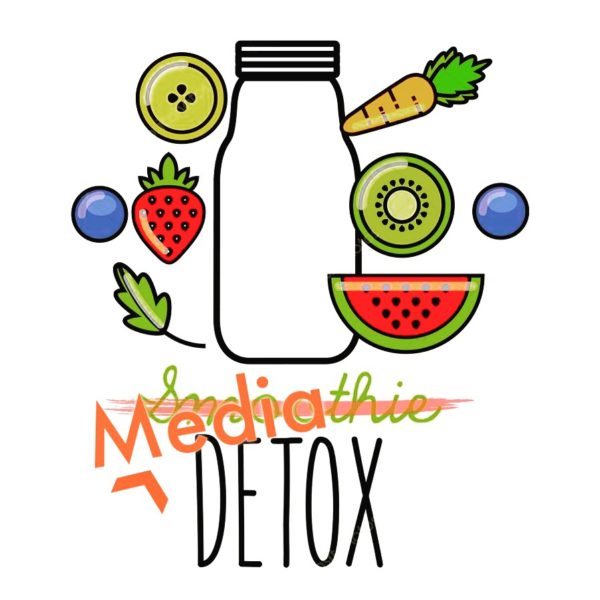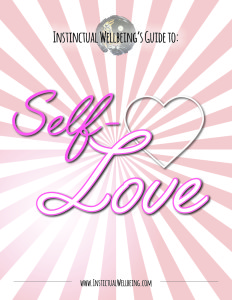Oh, boy – what a week. I just finished participating in a challenge from Tim Ferris’s book, The 4-hour Workweek, which was to go on a “Low Information Diet” / Media Detox for 5 straight days. This book has been around for more than a decade, but I just got around to reading it and fell in love with the idea a “Low Information Diet” and of fast-tracking your true priorities in life, vs. filling your time with distractions. After all, we all claim that we don’t have enough time in our days to do the things we love, yet – if you’re anything like me – we spend HOURS per day on social media, going down rabbit holes on the internet, reading articles and news stories online, flipping through magazines, or watching TV. So, I decided to take the plunge.
First, here were the rules I followed for the Media Detox:
- No media whatsoever for 5 days, including online news, newspapers, magazines, or social media
- No non-fiction reading (1 hour of fiction reading before bed was permitted)
- No TV, except for 1 hour of pleasure viewing in the evening
- No web surfing that wasn’t directly related and absolutely necessary to perform and/or complete a business job or task
- I also added in an additional criteria, which was no video games (because I usually like to play for an hour or two per week)
STRATEGIES I USED TO BLOCK MYSELF FROM MEDIA CONSUMPTION
I must say, the first couple of days of this exercise I felt like I was going mad. I couldn’t believe the number of times I went to check my social profiles, or surf the web for something completely random and unnecessary just to pass the time! Luckily, I know myself, and I knew that I’d mindlessly wander to the edges of the Internet just out of habit. So I set up three strategies to help me be successful and fight temptation during my Media Detox:
- I wrote a list of other things I could do besides hop on social media, browse the internet, watch TV, or play video games, so that I had a go-to alternative to reach for. Most of this time was spent working on my blog and new website, which ended up being extremely productive!
- I installed a Chrome extension called StayFocusd. It allowed me to input sites that weren’t “allowed,” such as Facebook, Twitter, Instagram, and YouTube. Every time I unconsciously navigated to one of these websites (mostly out of habit), it caught me and said, “Shouldn’t you be working??” and wouldn’t let me through. This extension saved me more than once. Brilliant!
- Finally – and this was a life saver – I completely DELETED the FB and IG apps from my phone. I’ve since reinstalled Instagram, but I’m not even sure that I will reinstall Facebook — I can’t tell you how much time I’ve gotten back in my day(s) by simply not scratching the itch of checking Facebook every time I’m at a red light, waiting in line somewhere, sitting on the train/bus, bored at home, in the bathroom, or hell – even walking down the street sometimes! And the sad thing is I didn’t even realize I was using social media so much until I completely removed it from my life. Without the distraction, I had to learn to fill the “void” in other ways: sit with the silence, make progres on a project or goal I’d been putting off, take a nap, people watch, listen to music, play with my cats, call my parents, etc. It was incredibly refreshing, but definitely took a couple days to adjust to.
THE RESULTS
Again, the best way to describe how I felt on Day 1 of this detox was like a frantic mouse trapped in a cage. Everywhere I turned, I was blocked by my self-imposed barriers. Wake up and scroll through Instagram? Nope. Browse through Flipboard to catch up on the news over breakfast? Negative. Check Facebook while sitting in Chicago traffic? Think again. See or hear something interesting that must be explored immediately? Too bad.
As someone who preaches the value of mindfulness and being present in every moment, I was actually a little embarrassed at how uncomfortable I felt when my mind wasn’t occupied (read: distracted and over-stimulated) every single second.
Thankfully, by the end of the week I had gone from feeling frazzled and like I hadn’t a single clue how to utilize all the spare time in my life (the first couple of days I literally just laid in bed staring at the ceiling), to feeling energized, excited about new ideas I had conjured up, productive, and more balanced and clear-headed than I had in a long time. I think that both my brain and body were happy to have a rest, and be challenged with new activities instead of resorting to the usual mind-numbing scrolling and swiping.
I also started to feel better about myself, which I’ll admit was an unanticipated result. Even though I’m aware of the phenomenon I refer to as “Keeping up with @Mr_and_Mrs_Jones” (enough to write a whole post about it, incidentally), I still think I underestimated the impact that being exposed to a steady stream of beautiful people, pictures and places, was having on my self-esteem and self-worth. By the end of my Media Detox, I witnessed a noticeable improvement in my self-talk and general outlook on where my life is currently at, without comparing it to everyone else who may also be doing cool things or be visiting far away places, and feeling like I wasn’t doing/seeing/being enough.
And finally, as I alluded to before, one of the best outcomes of the 5-day Media Detox was extra TIME. Oh my gosh – so much extra time. Like, hours of extra time back in my life and days that felt as if they’d been savored rather than blasted through. I can now understand why Tim Ferris included this Detox as part of his 4-hour Workweek book, because I can genuinely say that without distracting and/or “rewarding” myself every 2.5 minutes with a social media break or traveling down random surf holes on the internet, I was able to work in solid blocks of time and reduce my workweek by probably about 50%. It was incredible how much progress I made on “old” goals and projects i was procrastinating on, simply because I had no other choice but to sit down and do them.
Oh, and P.S. – in case you were wondering, my worst fears of being completely forgotten and/or missing out on all the amazing things my family and friends were up to or posting about, did not come to fruition. The world kept spinning, I still have friends, my family hasn’t disowned me, and I really don’t feel like I missed out on much of anything of significance. In fact, during this time I recorded an interview for a podcast, had two coaching calls, spoke with my family several times, started and finished a 5-part mini course (which will be available soon), and even landed two new pieces of business — all without being plugged in at all times. Crazy, right?
Overall this experience left me feeling sad yet impressed; encouraged yet a little ashamed at how much time I may have wasted in my life consuming media and messages that don’t actually move my life forward (i.e. those activities that create the ILLUSION of progress). I’m super glad I put myself through it though, because now I know how to move forward.
LIFE AFTER THE MEDIA DETOX: WHAT’S NEXT?
If I’m being honest, I’m a little sad my Detox / experiment has ended! 🙁 I mean, technically there’s nobody telling me that I must go back to consuming 4-5 hours of media per day again or jumping from distraction to distraction, but the general idea was that after this time period, I’d sort of go back to “normal.” Now that I’ve seen the other side though, I’m truly not sure I want to — sometimes the grass really is greener on the other side!
Ultimately, as with most things, the answer always lies somewhere in the middle of two extremes. So moving forward, I think I’ll need to net out somewhere in the middle of being completely ascetic, to being an media addict.
If you’re interested, here are some of my ideas for achieving this…
I’ve already adjusted the settings on the StayFocusd Chrome extension to be slightly less strict, but I’m still going to try and limit my desktop usage of these social media sites to 30 minutes per day. And like I already mentioned, I’m not sure if I’ll reinstall Facebook on my phone, although for Instagram you sort of have to have it if you want to be posting and engaging with awesome people.
The good news is that the makers of the Chrome extension have also created a broader tool to limit distractions called Freedom, which I believe allows you also block certain apps and websites across all devices, not just in Chrome. It’s pretty inexpensive, so I’m considering giving it a go (although it’s a bummer that it can’t yet block Facebook and Instagram apps on my phone, because that’s what I truly need 😬).
I think I will also begin “batching” my social media-related tasks so that I’m only responding to Instagram and Facebook messages and comments at certain times throughout the week, instead of randomly throughout each day, which can quickly become distracting. I’m also going to experiment with doing my actual posting at only pre-scheduled times each day. Again, this would be instead of just randomly interrupting myself and hopping on whenever I feel like it.
As for other media consumption such as news, TV, surfing the web and playing video games . . . well, before doing this detox, I had already initiated a household rule of “no screen time after 9pm,” which has done wonders for my sleep habits, so that’ll continue. I also think it’s realistic to continue limiting my TV viewing to 1 hour per day — that seems like plenty of time to catch up on a show and veg out a bit before doing something more productive (especially with DVR since you can skip the commercials, hehe). Luckily, I already didn’t watch the nightly news, receive newspapers, or subscribe to any online news sites, so that’ll be easy to maintain (except I have been considering just subscribing to a single weekly publication or print newspaper, because I like the idea of staying informed but not drinking from a media firehose. Highly recommended read about that HERE).
I will need to find a healthy balance with the other things though, as I am always researching new things online, learning something new and/or trying to better myself through non-fiction reading, and I love me a good video game. It’s all about moderation, and I think that now I’ve kicked the initial habits and started to build some great new hobbies to replace my old ones, it’ll be a lot easier to keep the momentum going and limit my time in these areas so that I don’t suffer from information overload.
As usual, I find that awareness is key to solving or improving just about anything, so I feel empowered with this newfound awareness of my media usage habits and ready to make lasting changes that’ll support my personal and professional goals.
Have you ever done a media detox? Would you? If so, let me know if you’re up for the challenge, what your concerns are, or what you think you’d learn (or have learned) from the experience!




